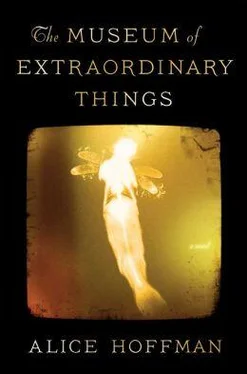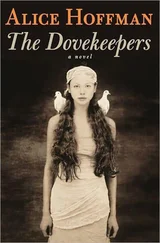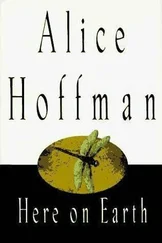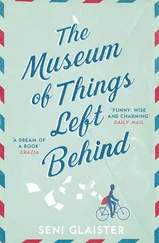Huge crowds had gathered outside the Asch Building, just off Washington Square. Nearly ten thousand people would rush to this address before the day was through, though the police quickly set to holding them back, forming a human chain so that the public might be kept away from the blasts of heat and the danger of falling sparks. Because it was Saturday, the stores on Fifth Avenue were all open—Marshall Field’s on Fifteenth Street and Lord & Taylor on Nineteenth Street, and all the dozens of small shops that lined the Avenue, from corset shops to perfumeries, to Charles Scribner’s Sons publishers, which had offices on Twentieth Street and Twenty-third Street where Fifth Avenue met Madison Park, a location where there was always a line of horse-drawn cabs waiting to bring shoppers back uptown. On the east side of Washington Square there were factories and tenements, but on the west side stood some of the most fashionable addresses. Here, where the grid of Manhattan began, there were dozens of brownstone town houses and the most exclusive stores in the city.
The streets were crowded with shoppers, and many among them rushed to the site where garment workers, mostly women and girls, had been trapped inside a sewing loft at the end of the workday. Fire ladders reached only to the sixth floor of the building that contained the Triangle Shirtwaist Factory, where workers as young as twelve were employed. Seamstresses on the eighth and tenth floors had been alerted that a fire had begun by the switchboard operator via telephone, but by the time Eddie arrived at the scene, the entire ninth floor of the factory was in flames.
The streets were teeming and the air had become a cauldron of heat and ash. The wind carried bits of cotton and wool cloth aflame above them, as if the sky was raining down fire. Photographers were being turned away. Eddie, however, spied Matt Harris, a reporter from the Times who usually had no problem with the police; he quickly attached himself to the newsman. Harris held a handkerchief over his mouth to filter out the ashes, but he could be heard plainly enough.
“I guess you’re with me,” he remarked drily when he noticed Eddie beside him.
“I am. If you’ll allow it.”
“Only the devil would want to keep this to himself,” Harris muttered.
When the police let Harris through, Eddie slipped past the barricades unnoticed. He thanked the newsman, insisting he would return the favor sometime, but the reporter shrugged off his gratitude. “You won’t be grateful soon enough. We’re about to see a horror. Trust me, you won’t thank me for this.”
Like most news photographers, Eddie had the ability to vanish. He’d trained himself to fade into the background, aware that it was best to be ignored by the players in a scene so that they might, in being unaware of him, be their truest selves. He set up his camera where there was less chaos, on the Washington Place side of the building, then quickly got to photographing two elevator operators as the police interviewed them. These men had rescued as many girls as possible, nearly 150 by now, but were now themselves overcome by smoke, unable to go back up the burning elevator chutes. “What will the ones we left behind do now?” one of them cried. Eddie turned his camera to the building. Girls who could find no way out gathered on the windowsills, clustered together in frightened groups, their cries taken to heaven by the updraft the fire had created.
The stairway from the ninth floor had ended with no exit to the roof. There was only a shaky fire escape, which had melted in the heat. Those trying to make their escape via that exit, twenty-five in all, had fallen to their deaths in the alley below. Scores more followed, but found no way out. When they were unable to get through the flames, the only choice before them was the open air of the windowsills. The horse-drawn fire engines, with rolls of newly invented fire hoses onboard, had arrived, and firemen were unwinding their hoses, stretching them out on Greene Street. But it was too late for many as the fire billowed in cascades of flames. Girls had begun to leap from the windows of the ninth floor, some embracing so they might spend their last moments on earth in each other’s arms rather than face their fates alone. Some jumped with their eyes closed, others with their hair and clothes already burning.
At first, the falling girls had seemed like birds. Bright cardinals, bone-white doves, swooping blackbirds in velvet-collared coats. But when they hit the cement, the terrible truth of the matter was revealed. Their bodies were broken, dashed to their deaths right before those who stood by helpless. A police officer near Eddie groaned and turned away, his head in his hands, for there was no way to save those who were already falling and no way to come to terms with the reality before them. The life nets being held out were worthless; bodies soared right through the netting. Many of the desperate leapers barreled onward, through the glass cellar lights embedded in the sidewalk, to the basements below.
The firemen from Company 20 did their best to soak the building, so that the gutters along the street turned to rivers. Charred belongings were scattered everywhere, and flames continued to burst through the air like stinging bees. Those workers who had survived, from the eighth and the tenth floors, huddled together, stunned. Eddie held a hand over his eyes so that his vision wouldn’t be blurred by heat waves. He couldn’t take in even a small portion of the destruction he saw. He turned back to his camera, the truer vision, the eye not tainted by human fear and regret. But the horror of the disaster was the only thing in sight, and the lens found the same anguish Eddie viewed. It was an even worse sight to behold through the eye of the camera, for its focus was sharper and more defined.
Girls and a few young men continued to gather on the windowsills, gazing out over the scene before closing their eyes and leaping. It seemed an endless stream of beautiful young people would continue to fly above them. The twisted fire escape still popped and shot off sulfurous bits of metal into the sky, the echo resembling gunfire. The only other sound was that of the water hitting the building, then running into the streets, a tragic waterfall. Before long Eddie was standing in a black pool up to his ankles.
It was then he spied the owners being ushered away in chauffeur-driven cars, behind them a carriage drawn by two fine black horses. The bosses and their associates had all managed to escape by climbing onto the roof, then making their way to the rooftop of the next factory. Eddie turned his camera, catching the moment when one of the owners gazed at the burning factory before a younger dark-haired man drew him back inside the curtains of the carriage. For an instant Eddie thought he knew this young man, though it was impossible; he wasn’t acquainted with anyone of this ilk. No one he crossed paths with would wear a beaver coat and ride in a coach with velvet curtains while girls leapt into the air with no net to catch them, and no salvation, and no carriages to carry them away.
By then there were scores of bodies on the sidewalk. Even those hardened men who saw death every day, firemen and police officers, were crying as they worked. Eddie did his job, but as he photographed the fallen he had the sense that he was standing at the end of creation. If the ground split open beneath the Asch Building and took them all into the fires of hell, this day could not have seemed any more horrifying. The heat of the Asch Building could be felt two blocks away, though the flames were now smoldering. The crowd was hushed, even as more and more people were drawn to the scene, witness to the worst workplace disaster in the history of the city. Eddie took one photograph after the other. He could not stop, his angry heart convinced that he needed to document every inch of the catastrophe. In those hours on Washington Place, as he stood in the water and ashes, he lost the ability to be detached. All of those times when he hadn’t felt another man’s losses now came back to haunt him. He saw not only in black and white but also in every shade in between. The effect was humbling. The pools that bloomed red on the concrete were indeed blood, the white shards flung upon the cobblestones, bone. The bodies of the girls and a few strong young men were illuminated; each shone with light, the silver-edged sorrow of the recently deceased. Many were so wounded from their falls that the policemen who’d been sent to move them and tag the bodies so they might later be claimed, were doubled over in shock, the toughest among them gasping for strength and breath.
Читать дальше












